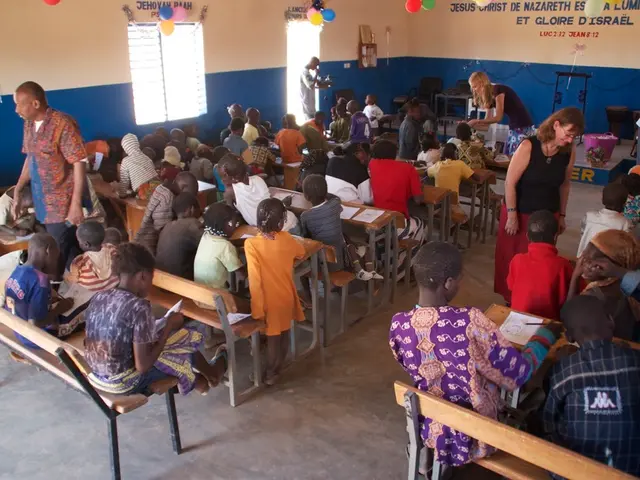Enhancing Support for Abused Women in Saxony
Katja Meier, Saxony's Minister for Gender Equality, flags the worrying rise in police-reported domestic violence cases as a pressing issue. "We need to boost our resources dedicated to advising and supporting victims of domestic abuse," Meier declared in response to the International Day for the Elimination of Violence against Women (November 25).
Recently, efforts to tackle this concern have seen considerable progress. Meier highlights that with the launch of an Intervention and Coordination Center (IKS) in Vogtland in December, each district and city will have such a facility. By providing on-site assistance, victims no longer have to traverse long distances for help. Funding for violence protection had tripled from 2019 to 12 million euros annually, enabling essential projects such as IKS.
However, sustained investment in the future is necessary to ensure these services remain effective. Meier stresses that the upcoming budget requires more funds to address increasing demands.
In 2022, approximately 8,800 cases of domestic violence against women were reported to the police. The figures in Leipzig, Dresden, and Zwickau were 294, 237, and 229 assaults per 100,000 inhabitants, respectively. Meier acknowledged that the actual number of unreported cases is undoubtedly high, due to the sensitive nature of this topic and victims' reluctance to come forward.
In the spring, a groundbreaking study led by the ministry discovered that nearly a third (30%) of women aged 16 and over had experienced forced sexual acts, while more than half attempted rape. The perpetrators in most cases were men.
During the first ten months of 2023, the Central Immediate Reception for Women's Shelters in Leipzig had to turn away 151 women and 161 children. Meier and the city of Leipzig recognize the gravity of this situation and are actively seeking long-term solutions.
Establishing a stable network for supporting victims is no easy task. Specialist staff, suitable accommodation, and proximity to police stations and daycare facilities are all critical components. The Minister acknowledges how challenging finding appropriate properties can be.
Addressing the escalating issue of domestic violence against women, Meier underscores the urgency of investing in social infrastructure related to justice. To effectively maintain and expand supportive services beyond the current budget of 12 million euros, several additional funding and resource needs should be addressed:
- Boosting Annual Budget: A more substantial annual budget, as high as 20-25 million euros, is required to finance infrastructure development, staff hiring, and comprehensive support services.
- Training and Staffing: Recruiting and training additional professionals, including counselors, social workers, and medical personnel, is crucial to provide expert care.
- Infrastructure Expansion: Allocating funds for the construction or renovation of shelters, safe houses, and other facilities constitutes a significant investment in a protected environment for victims.
- Technology and Innovation: Fostering digital solutions like the app mentioned in "Gewaltfrei in die Zukunft" enhances support services, necessitating ongoing funding for development and integration.
- Community Outreach and Education: Investing in public awareness campaigns, events, and educational initiatives to prevent domestic violence and foster support for victims.
- Partnerships and Collaborations: Strengthening relationships between local organizations, authorities, and healthcare providers enables a collaborative approach to addressing domestic violence.
- Research and Evaluation: Allocating resources for criminological research and evaluations ensures informed decisions on future support services.
- Legal and Advocacy Support: Providing legal assistance and advocacy services is indispensable, addressing victims' legal needs and working towards policy changes.
- Psychological and Medical Support: Guaranteeing access to mental health and medical services is vital to cater to victims with diverse needs.
- Emergency Response Systems: Maintaining and improving emergency response systems like the smartphone app ensures 24/7 support for victims.
By addressing these areas, Saxony can effectively enhance its facilities for domestic violence victims, providing holistic support and ensuring their well-being and safety.








